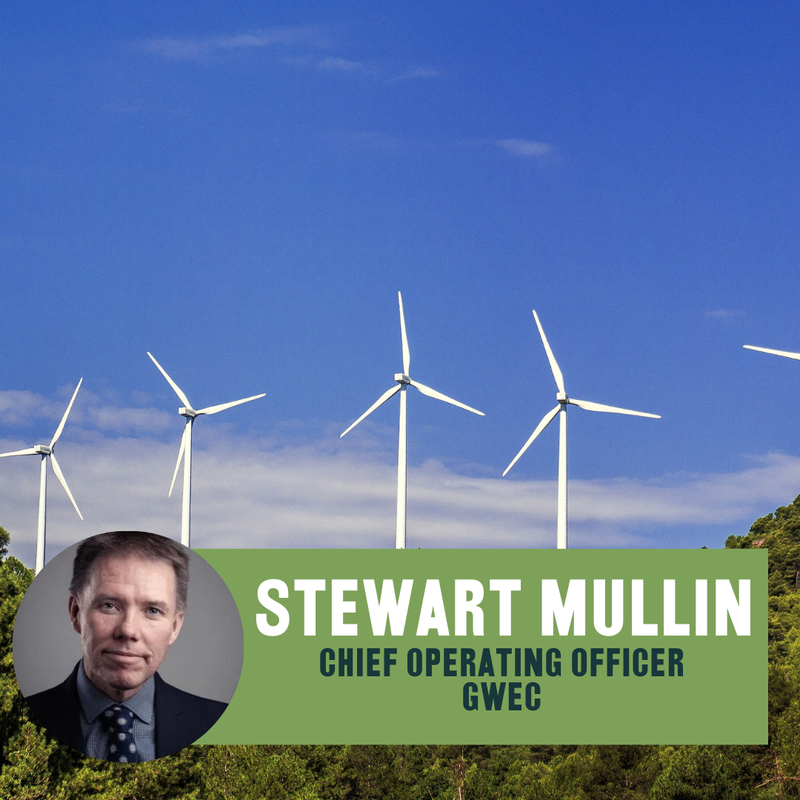
In an insightful conversation with Stewart Mullin, the Chief Operating Officer of the Global Wind Energy Council (GWEC), he shared a comprehensive overview of the state of the global wind energy sector and its urgent need for talent. With decades of experience in renewables, Mullin shared valuable insight into GWEC's efforts to address the global talent gap in wind energy, the importance of diversity in the workforce, and the role policies have in supporting the industry's growth.
GWEC is a global organisation dedicated to promoting wind energy worldwide. With offices in key locations around the globe, the council is at the forefront of addressing the renewable energy sector's challenges. The expansion into new regions, like the recent establishment of an office in Portugal, signifies their commitment to fostering global wind energy development.
One of the key challenges facing the wind energy sector is the significant talent gap. With a requirement for over 570,000 technicians by 2027 to meet the deployment of an estimated 670 gigawatts of new wind capacity, Mullin highlights the industry’s race against time to attract and train skilled workers. This challenge is compounded by the need for a diverse workforce, particularly the underrepresentation of women in the wind energy sector.
Mullin emphasises the necessity for a thriving supply chain and profitable developers within the wind energy sector to ensure its attractiveness to potential talent. He notes the importance of security and the challenge of competing with other sectors for skilled professionals. The allure of the wind sector, he believes, lies in its potential to contribute positively to societal and environmental issues, inspiring individuals to join the field with the hope of making a meaningful impact.
This vision for the wind industry not only highlights its economic and technical needs but also its role in fostering a sustainable future for coming generations, offering a compelling narrative for those looking to power a greener future.
The importance of creating pathways for people from various backgrounds is key when it comes to powering the wind energy industry. Whether through formal education, apprenticeships, or transition programs for professionals from other industries, GWEC is actively working to attract talent. The introduction of the GWEC Academy, which aims to promote training courses to individuals from all walks of life, is a step towards standardising and enhancing the quality of wind energy education globally.
The conversation also touches on the significant role of government policies in supporting the wind energy sector. Initiatives like the US Inflation Reduction Act are key when it comes to providing the investment certainty needed for the industry to thrive. Stewart calls for inclusive policies that facilitate a just transition from fossil fuels to renewable energy all over the world, ensuring that there is room for everyone in the new energy landscape.
Stewart Mullin's insights into the global wind energy sector, and GWEC’s efforts, highlight the urgency of addressing the talent gap and the importance of diversity and inclusivity in building a resilient workforce. With the right policies, education initiatives, and industry commitment, the wind energy sector can meet its ambitious goals and play a pivotal role in the global transition to renewable energy.
If you’ve found this article useful and would like to hear more about the talent shortage in renewables, you can dive deeper with our latest report, Powering the Energy Transition.

Topics covered
Keep reading...
All blogs-
Industry insights
Tackling the Renewable Energy Sector's Recruitment Hurdles: Insights with Nick Worpole
-
Industry insights
Addressing Talent Challenges in Renewable Energy: Insights and Strategies Post-COP28 with Mindy P...
-
SO Careers
SO Careers - Meet Senior Executive Consultant Martina Chongtham
-
Awards
Spencer Ogden is announced as a 2022 winner of Best and Brightest Companies to work for
-
SO announcements
Our time at the ASEAN Wind Energy Event 2022





